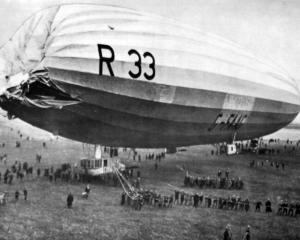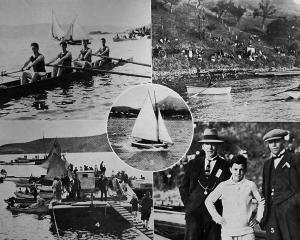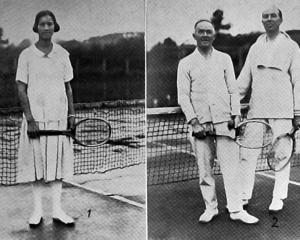When asked if he had formed any opinion of the way in which co-operative principles had been applied to agriculture in New Zealand (says the New Zealand Herald), he replied that unfortunately he had been unable, for health reasons, to visit as many of the co-operative organisations as he should have liked.
''I have, however,'' he went on, ''visited at Dunedin a butter factory which is doing the business of 2500 farmers, and was quite delighted with all I saw. I also visited one of the big freezing establishments at Christchurch, which is doing a very big business and in the best way. The more the farmers combine together for the management of their own business the better. New Zealand has a splendid chance of giving the world an example of a co-operative commonwealth. How to increase the profits of the farmer and the orchardist is the problem. Co-operative organisation supplies the key.''
• The sixth annual meeting of shareholders of the Dunedin Rubber Company was held in the board room of the New Zealand Express Company's building in Bond Street last night.
The chairman of directors (Mr W. L. Simpson) presided, and the other directors were also present - namely Messrs Hugh Adam, Alfred Anderson, Thomas Glendining, and F. W. Mitchell.There were about 35 shareholders in attendance.
The annual report was as follows: The directors beg to submit accounts for the year ending November 30, showing a balance at credit of profit and loss account of 1622 11s 2d.
In view of a portion only of the estate being revenue producing the profit and loss account has been compiled upon a somewhat arbitrary basis.
At the date of balance about one-third of the trees upon the estate were tapping, hence one-third of all general charges incurred at Kelantan have been charged to profit and loss.
On the other hand, the whole of the expenditure at Dunedin has been charged to that account.
Buildings, tools, plant etc, have been written down, the depreciation being charged to development account, as formerly.
Shareholders are no doubt aware of the heavy fall in the selling prices of rubber, which has affected the revenue so seriously.
The low price of the commodity is causing general anxiety, and planters are now making every effort to reduce the cost of production so as to meet, as far as possible, the altered conditions.
The estimate of output of rubber for the calendar year was 40,000lb, and this amount has been exceeded by 12,205lb, while the amount harvested during the financial year was 47,063lb.
The manager estimates the output for the current year at 100,000lb. Since his return to the estate Mr W. B. Bell has reported favourably as to the growth of the rubber trees, and the clean and attractive appearance of the plantation generally.
The Profit and Loss Account: while regretting that it does not bring out a balance large enough to enable a dividend to shareholders to be paid, it must be satisfactory to shareholders to find it so substantial - viz., 1622 11s 2d.
The rubber account shows 5363 1s 1d, as the result of 47,063lb harvested, for a return averaging 2s 3d a lb, and had rubber maintained the price the year opened with - vis., 4s - the directors would certainly have been in a position to pay a very considerable dividend. - ODT, 27.3.1914












